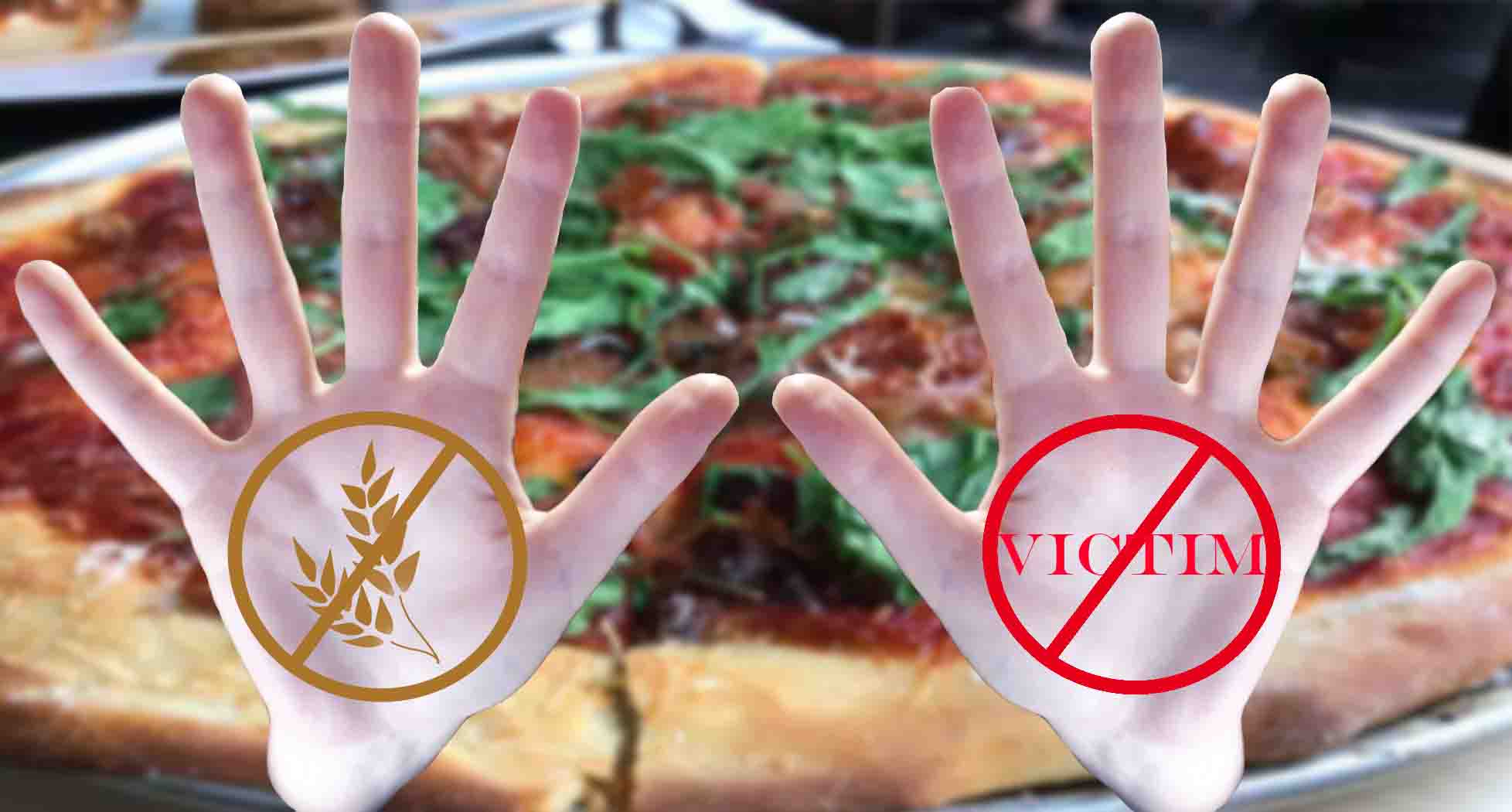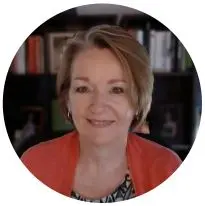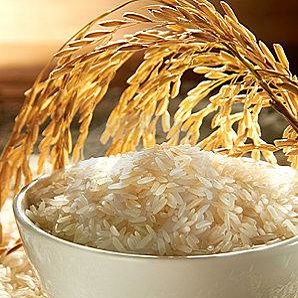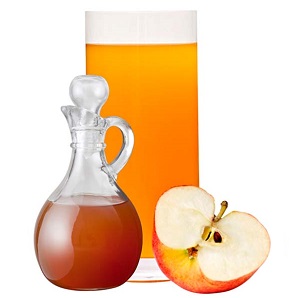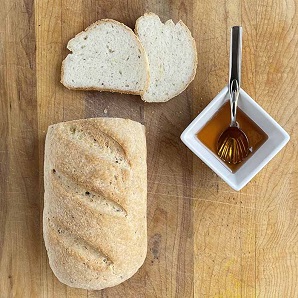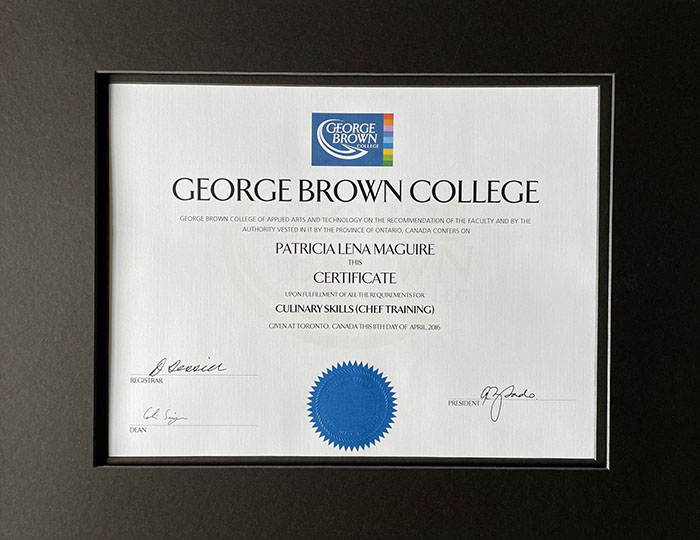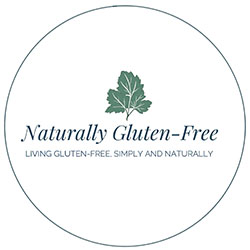- Home
- Living Gluten Free
- What Nourishes You
What Nourishes You?
This is the text of a speech I gave at my local Toastmaster's club. I decided to share it here with you because, even though it's not specifically about living gluten-free, I think it's relevant to understand our dietary requirements in the larger context of our heritage and our place in culture and community. I hope you enjoy!
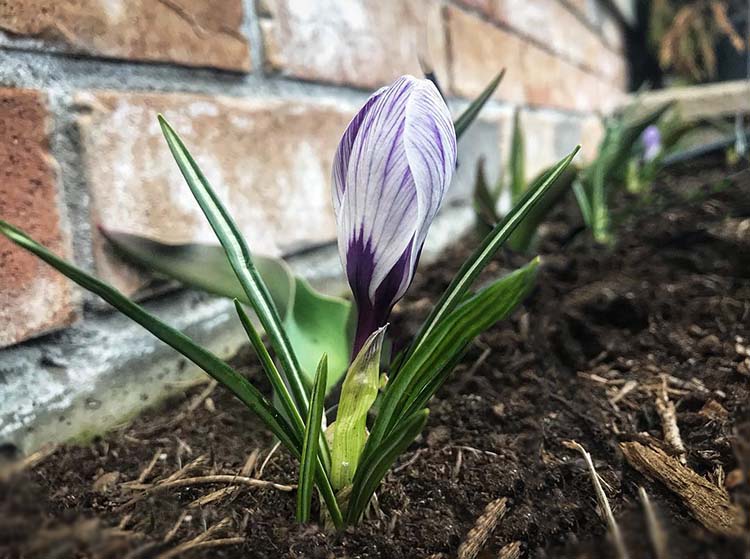
What Nourishes You?
Madam Chair, Fellow Toastmasters, honored guests; I have a question for you…
Do you dream about bread?
I do, with disturbing frequency. I’m not asking if you like bread, or if you think about bread, or if it’s the first thing you reach for when the hunger pangs hit. I’m talking head on your pillow in the depths of REM sleep dreaming.
For me the dream takes place in my grandmother’s kitchen. It’s a big country kitchen with a wood stove at one end and the newer electric stove and fridge at the other. And in the middle is the big farmhouse table that doubles as a workspace and the gathering place where family meals are shared.
The star of the dream is always a sandwich. It’s made from two thick slices of homemade wheat bread; it doesn’t matter what’s between them, it’s about the bread. The crust is crispy, even a bit tough. The inside is soft, moist, slightly sweet and a little chewy. The fragrance fills my nose and the airy wheatiness caresses my tongue.
And then the dream turns dark… The memory, the cold sting of reality leaks through the dreamy haze and reminds me “you can’t have this, you have celiac”.
Fellow Toastmasters, I bring this up, not so you’ll feel sorry for me (you can if you like, I’ll take all the sympathy I can get) but to illustrate a point.
Id like to talk to you this evening about the things that bind us together and the things that make us unique; and how understanding where we came from can help us to understand who we are now.
What nourishes you, is not necessarily what nourishes me.
You may have noticed I’m a little bit obsessed with food. We’ll touch on some other topics too, but lets start with diet.
If I ask you “what is the best diet” what would your answer be?
Would it be vegetarian, flexitarian, pescatarian, nutritarian?
Omnivore, locavore, carnivore, herbivore,
Or maybe the Mediterranean diet or the Asian diet or the Nordic diet or the South beach diet.
The number of diets out there is nearly infinite yet all claim to have found the key to the true way we should eat. The one perfect human diet.
But what if there is no one perfect human diet? What if we’re all individuals? Our ancestors were all hunter gatherers but weren’t they hunter gatherers in different places in the world with different types of food to hunt and gather? Maybe some of them lived near oceans and ate seafood, maybe some grew olives and made olive oil and others used chilis to preserve and season their food. I wonder how much of that got encoded in their genes and passed down to us?
There’s a new thing out now called “eating for your ancestry”. The idea is that different people thrive on different food. For example, most of world, except those of northern European decent are lactose intolerant. Many people whose ancestors evolved in Asia or the America’s don’t do well with alcohol. And of course, there is celiac disease which is genetic. It turns out that my ancestors who came from Ireland did not evolve eating wheat. They evolved eating (wait for it, some stereotypes exist for a reason) potatoes... and oats. Michael Pollan in his book “Cooked, a Natural History of Transformation” suggests that bread is in our DNA. Well, it’s not in mine.
Gary Paul Nabhan in his book “Food, Genes, and Culture” says that depending on your genes you might be more or less sensitive to a high fat diet, or cholesterol, and not everyone it turns out, does well on olive oil. Did you know that some people who live in Sardinia in the Mediterranean get sick if they eat fava beans? It’s a genetic enzyme deficiency. Yet this same deficiency protects them against malaria. How wild is that?
What nourishes one, is not necessarily what nourishes another.
But there’s more to life than food. We have our traditions and our values that are also passed down to us. What comes to mind when you hear the word culture? Food will be part of that of course, but what about the music that forms the soundtrack to your life? The art that you’re drawn to, moved by? Or is culture more about how people move through the world and interact? If they say sorry when they bump into you on the street, or hold the door for you, or take their shoes off when they enter your home?
When I think of culture I think about that big farmhouse kitchen table. Parent’s, aunts, uncles, many of them gone now, passing big bowls of mashed potatoes, roast beef, and gravy. Laughter and conversation so loud you can barely hear yourself think. Does that resonate with you, or is it something different?
What nourishes me, is not necessarily what nourishes you.
Let’s shift gears again for a sec and think about your own personal temperament? Where are you most comfortable, relaxed? How do you unwind? Is it in a big crowd with lots of action and new people to meet? Or are you more you in a smaller group with people you know well. Or even on your own with a hot cup of tea and a good book? This pandemic has been hard on all of us in different ways, but I do recognize that it’s been worse for my extrovert friends than for me. I try to remember that and put down the book once in a while and pick up the phone.
I do think we’re so very fortunate and privileged here in Canada to live in a place where our individual differences are valued. To be part of a huge and culturally diverse mosaic where we can travel the world without leaving our own country. We share our stories, our food, our ways of life. We have so much we can learn from each other.
Sometimes it’s hard for us all to get along. I think we do pretty well, but cultures do clash. We struggle to balance the fact that we have such different backgrounds and experiences with our common humanity. We are each unique yet we’re more the same than we are different.
What you thrive on, what makes your heart sing may or may not be the same as your neighbor, but we all need food to feed our bodies. And man cannot live by bread alone, wheat or otherwise. We need love and music and art and family, solitude, and togetherness to feed our souls
What nourishes you?
Home > Gluten-Free Lifestyle > What Nourishes You?
You Might Also Like
Celiac Victim? Are you a victim of celiac disease, am I? Here are my thoughts on victim mentality and the affect it has on our well being.
Gluten-Free International Cooking: As we travel around the world, even virtually, we find cuisines that are mostly naturally gluten-free. The flavours and spices and smells will have you wanting to try new things.
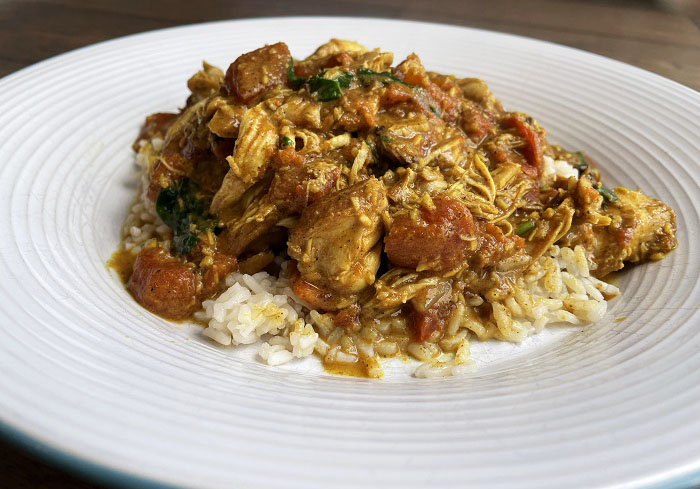
Interesting and Informative Books on Celiac Disease and Healthy Eating: Over the years and in building this site I've read a variety of material. Although there are some books that focus on celiac disease and gluten free foods specifically, I've broadened my reading to include an exploration of the food industry, auto-immune disease, cooking for health and other related material. Check out my reviews and maybe you'll find a book you'd like to pick up.

Sources:
Scaccetti, J. (2019, January 24). Eating for your ancestry. Agent Nateur. Retrieved April 20, 2022, from https://www.agentnateur.com/blogs/agent-tips/eating-for-your-ancestry
Pollan, M. (2013). A natural history of transformation. Allen Lane.
Nabhan, G. P. (2013). Food, genes, and culture eating right for your origins. Island Press/Center for Resource Economics.
Cain, S. (2013). Quiet: The power of introverts in a world that can't stop talking. Penguin Books.
Canadianvisa.org. (2021, May 12). Canadian culture: Life in Canada. https://canadianvisa.org. Retrieved April 20, 2022, from https://canadianvisa.org/life-in-canada/culture
